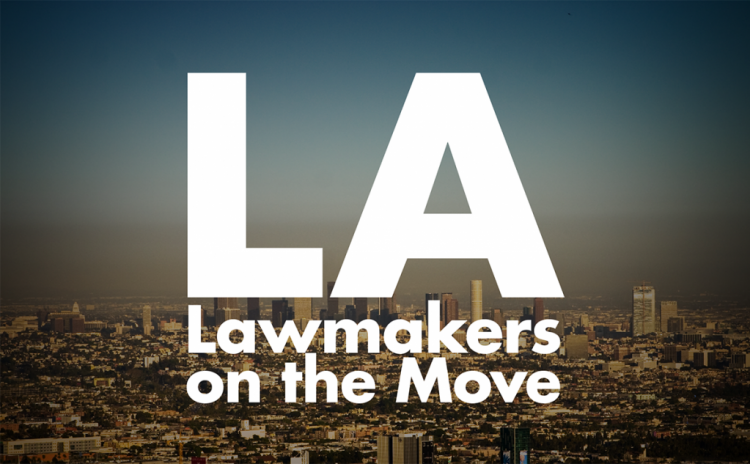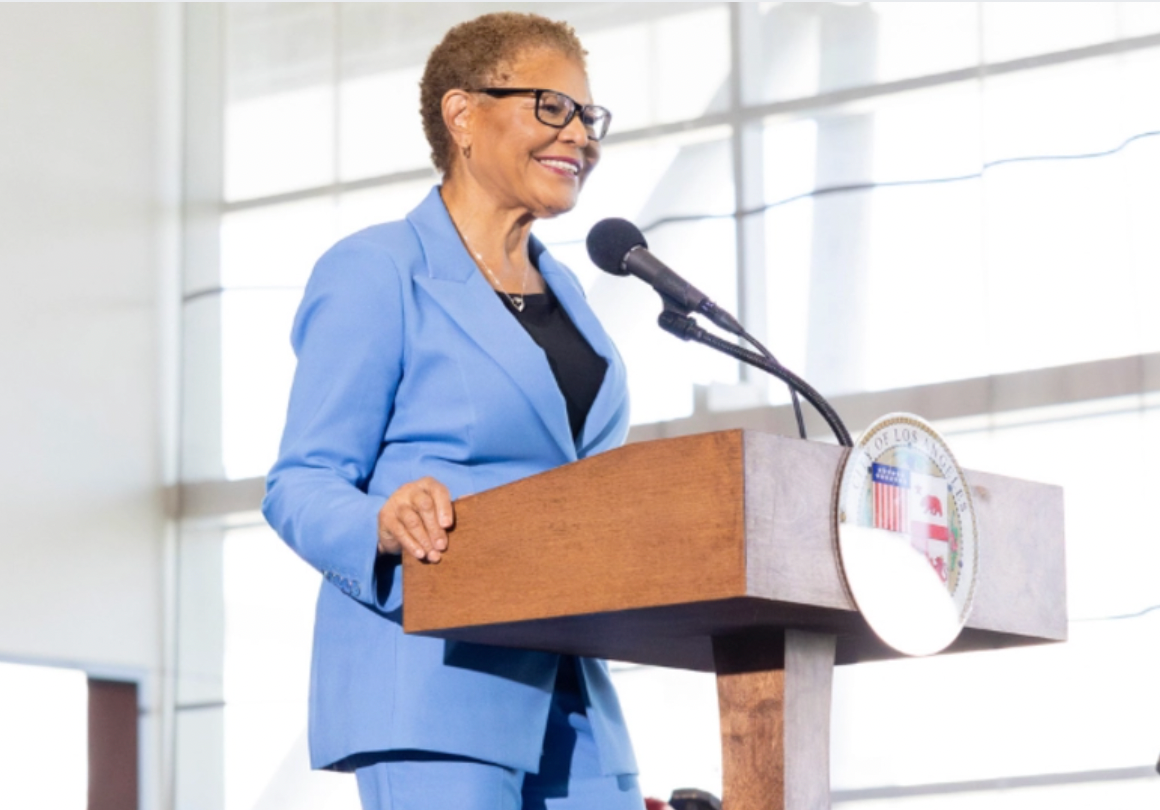Bass reduces curfew hours

Los Angeles City Mayor Karen Bass yesterday reduced the curfew hours for Downtown Los Angeles from 8 pm to 6 am nightly to 10 pm to 6 am following successful crime prevention and suppression efforts.
Bass instituted the curfew with support from elected, law enforcement, and business leaders six days ago during protests against the Trump Administration’s immigration policies of bringing Immigration and Customs Enforcement (ICE) agents into the County and detaining many undocumented immigrants.
“The curfew, coupled with ongoing crime prevention efforts, have been largely successful in protecting stores, restaurants, businesses and residential communities from bad actors who do not care about the immigrant community,” Bass said. “Today, I am narrowing the curfew as we continue to quickly adjust to changing posturing out of Washington. I want the Downtown Los Angeles community of residents, business owners and events venues to know that my priority will continue to be ensuring safety, stability and support in the Downtown neighborhoods.”
Bass’s decision also drew the support of several City Council members.
“We’re committed to supporting Downtown L.A. residents, small businesses, and workers while standing proudly with our immigrant communities and peaceful demonstrators who make our city vibrant and strong,” said Councilmember Ysabel Jurado, who represents neighborhoods within the curfew area. “Pushing the curfew start time is a step in the right direction.”
“As the curfew is narrowed, we’re continuing to ensure residents and businesses in the affected areas have the support they need,” said Councilmember Eunisses Hernandez, who represents communities within the curfew area. “We remain focused on protecting immigrant communities, supporting small businesses, and defending the constitutional rights of all Angelenos.”
The curfew area includes Downtown LA, bounded by the 5, 10, and 110 freeways. Please click here to see the curfew map and guidance.
Chu urges FEMA to help fire survivors

U.S. Rep. Judy Chu (D-Monterey Park, Alhambra, San Gabriel, Pasadena) this week led 14 members of the California delegation in a letter to David Richardson, the Senior Official Performing the Duties of FEMA Administrator, urging the agency to explore all available federal disaster housing programs for survivors who remain displaced nearly six months after the devastating Los Angeles fires.
The Members urged FEMA to explore all options, including the Direct Temporary Housing Assistance program, which encompasses initiatives such as Direct Lease to directly house survivors when there is a lack of available and affordable rental options following a disaster.
“The Eaton Fire and the Palisades Fires were the second and third most destructive wildfires in California history, tragically taking 30 lives and destroying over 16,000 structures,” the Members wrote, noting that the majority of properties affected were single-family homes.
While FEMA has allocated $135 million in Housing Assistance, the lawmakers emphasized that too many survivors are still struggling to secure stable housing.
“Although many survivors have been approved for FEMA assistance, finding a property and landlord willing to accept FEMA stipends is not guaranteed,” the Members continued. “Survivors are contending with one of the country’s most expensive and competitive housing markets that predated and was only exacerbated by the fires, jeopardizing their ability to find housing options that can be covered by their FEMA stipend.”
Calabasas approves FY 2025-26 budget

Calabasas Mayor Peter Kraut announced in his Letter to the Community last week that the City Council adopted the Fiscal Year 2025-26 budget.
The link provided in Kraut’s letter takes readers to a draft FY 2025-26 proposed budget with city-wide revenues of $79.6 million with expenses of $91.2 million. This results in a deficit of $11.6 million. This decrease in fund balance is due to the proposed capital infrastructure investment for next year.
“This budget will serve as a roadmap that supports services, infrastructure and programs enhancing daily life in our community. Maintaining a balanced, responsible budget is at the heart of a thriving city, and we remain committed to fiscal health, strategic investment and long-term sustainability,” wrote Kraut in his letter.
“The approved budget emphasizes investments in public infrastructure, community programs, cultural and recreational events and essential city services to support the well-being and quality of life for residents,” he added.















